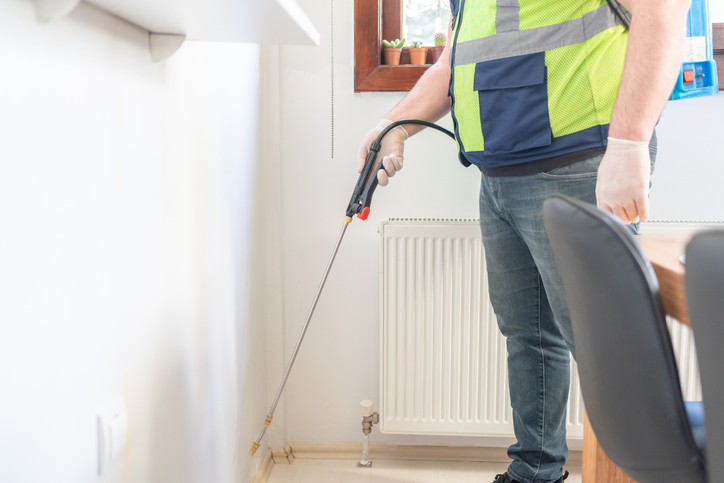Rodents are more than just unwanted guests; they are carriers of numerous diseases that threaten human health. From hantavirus to leptospirosis, these illnesses can lead to severe health complications or even fatalities. Rodent pest control serves as a critical defense, preventing infestations and reducing the risk of disease transmission. Understanding its role and implementing effective strategies can safeguard your home or business from these dangers.
1. The Diseases Carried by Rodents
Rodents are carriers of more than 35 diseases, which they can spread directly or indirectly to humans.
- Hantavirus: Spread through rodent droppings, urine, and saliva, hantavirus can lead to Hantavirus Pulmonary Syndrome (HPS), a potentially fatal respiratory condition.
- Leptospirosis: Often contracted through water or food contaminated by rodent urine, leptospirosis can cause kidney and liver damage.
- Salmonellosis: Rodents can contaminate food supplies, spreading salmonella bacteria and causing severe gastrointestinal illness.
- Plague: Historically devastating, plague is transmitted by fleas that infest rodents.
Preventing these diseases starts with eliminating rodents and their exposure to living spaces.
2. How Rodents Spread Diseases
Rodents transmit diseases in multiple ways:
- Direct Contact: Humans can become infected by touching rodents, their droppings, urine, or saliva.
- Contaminated Food and Surfaces: Rodents scavenge for food, contaminating pantries, countertops, and storage areas.
- Airborne Transmission: Diseases like hantavirus can become airborne when rodent droppings and nesting materials are disturbed.
- Pest Vectors: Fleas, ticks, and mites carried by rodents can spread diseases like Lyme disease and typhus.
Understanding these transmission pathways highlights the urgency of implementing rodent pest management measures.
3. Preventive Measures to Stop Rodent Infestations
Prevention is the most effective way to avoid the risks associated with rodent-borne diseases. Key steps include:
- Sealing Entry Points: Inspect your property for cracks, gaps, and openings where rodents can enter. Use materials like steel wool, caulking, or hardware cloth to block these pathways.
- Eliminating Food Sources: Store food in sealed containers, clean up crumbs and spills, and properly dispose of garbage in rodent-proof bins.
- Decluttering: Remove piles of debris, cardboard, and other materials where rodents can nest.
By reducing access to shelter and food, you make your property less attractive to rodents.
4. The Role of Professional Rodent Pest Management
Professional pest control services provide specialized expertise to eliminate rodents effectively. Their approach typically involves:
- Inspection: Identifying rodent activity, nesting sites, and entry points.
- Targeted Treatments: Using traps, baits, and eco-friendly solutions to eradicate infestations.
- Ongoing Monitoring: Ensuring long-term prevention by addressing recurring issues and reinforcing barriers.
Engaging professionals ensures comprehensive control while minimizing health risks.
5. Maintaining Hygiene to Reduce Disease Risks
A clean environment is critical for preventing rodent infestations and the diseases they carry.
- Regular Cleaning: Disinfect surfaces, especially in kitchens and storage areas, to remove traces of rodent activity.
- Proper Trash Disposal: Keep garbage in sealed containers and dispose of it regularly to prevent attracting rodents.
- Sanitizing Contaminated Areas: Use appropriate cleaning solutions to eliminate harmful pathogens from rodent droppings and nesting materials.
Consistent hygiene practices help maintain a safe and disease-free environment.
6. The Economic and Social Impact of Rodent-Borne Diseases
Rodent infestations not only affect health but also have financial and reputational consequences:
- Healthcare Costs: Treating diseases like hantavirus or leptospirosis can be expensive, involving hospitalization and long-term care.
- Property Damage: Rodents can chew through wiring, insulation, and structural components, leading to costly repairs.
- Reputational Damage: For businesses, especially in food-related industries, rodent infestations can result in fines, closures, and a loss of customer trust.
Investing in rodent pest mitigation safeguards your health, property, and reputation.
7. Integrated Pest Management for Sustainable Control
Integrated Pest Management (IPM) is an environmentally friendly approach to rodent control that emphasizes prevention and minimal pesticide use.
- Monitoring: Regular inspections to detect early signs of rodent activity.
- Non-Chemical Methods: Using traps, exclusion techniques, and habitat modification to control rodents.
- Education: Training homeowners and businesses on preventive measures to maintain rodent-free environments.
IPM offers a balanced solution that protects health while minimizing environmental impact.
8. Benefits of Long-Term Rodent Control Strategies
Implementing long-term pest control measures provides lasting benefits, including:
- Reduced Health Risks: Eliminating rodents minimizes exposure to disease-causing pathogens.
- Peace of Mind: Knowing your home or business is protected from infestations enhances your sense of security.
- Cost Savings: Preventive measures reduce the likelihood of costly repairs and medical expenses.
A proactive approach ensures a healthier, safer environment for years to come.
Rodent pest control is essential for preventing the spread of dangerous diseases that threaten human health and well-being. By addressing infestations through prevention, professional intervention, and hygiene practices, you can protect your property and the people who live or work there. The long-term benefits of rodent pest management extend beyond health, safeguarding your financial and social well-being.
Safeguard your health with professional rodent pest control from Prompt Action Pest Control. Contact us at (877) 877-6678 for reliable solutions to stop the spread of dangerous diseases today!














